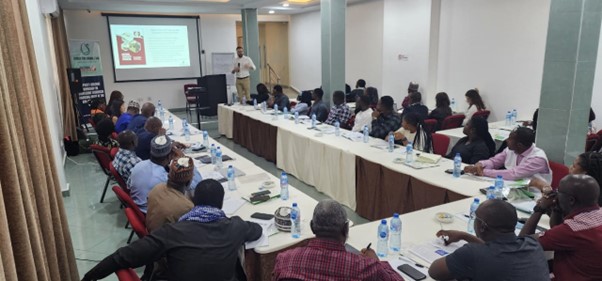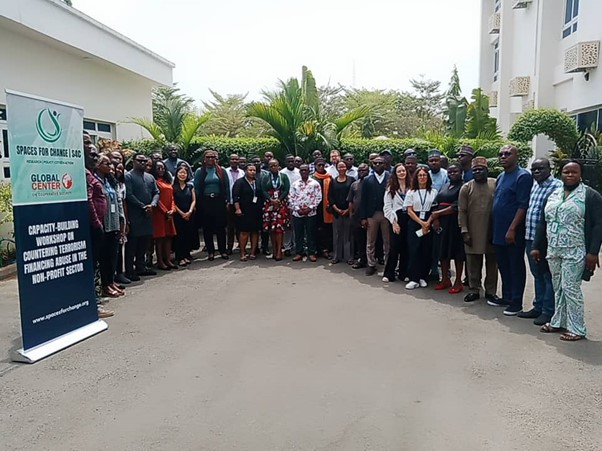Fifty (50) executives of international non-governmental organizations (INGOs) working in the north-eastern region of Nigeria attended the Inherent Vulnerabilities’ Mitigation Workshop, organized by Spaces for Change|S4C and GreenAcre Associates with support from the Global Centre on Cooperative Security, on February 6, in Abuja, Nigeria. Against the backdrop of the national terrorism financing risk assessment (TFRA) of non-profit organizations (NPOs) conducted by the Special Control Unit against Money Laundering (SCUML) in 2022, the workshop targeted subsets of NPOs identified to be at risk of terrorism financing abuse. Among other things, the TFRA identified ten inherent vulnerabilities that are likely to increase the risk of TF abuse. Foreign NPOs active in the North-East fall within this category.
At the workshop, INGO executives learned about the meaning and objectives of the TFRA SCUML conducted in 2022; the methodology employed in conducting the assessment; the terrorist threats NPOs face in Nigeria; the inherent vulnerabilities of NPOs with high exposure to terrorism financing abuse, and the oversight activities of the Financial Action Task Force (FATF) which sets and assesses international standards on money laundering and terrorist financing.
The TFRA was commissioned by the Government of Nigeria consistent with the requirement of FATF Recommendation 8 (R8). In line with FATF requirements, the assessment identified NGOs that meet the FATF definition; identified the terrorist financing threats to NGOs; identified the nature of the threats, and also identified ‘inherent vulnerabilities’ likely to increase the risk of terrorist financing abuse of an NGO. Boko Haram and ISWAP are the major terrorist threats identified in Nigeria. The assessment found that geography is the most significant single factor in the level of risk. Even though there is little evidence of a terrorist financing risk for most NPOs in most parts of the country, NPOs operating in the North-West and North East regions face a significantly greater risk.
What can NPOs do to mitigate the terrorist financing risks in their charitable operations? INGO executives learned about the three different layers of protective measures they can take to reduce their exposure to terrorist financing abuse. First, they need to take steps to understand the terrorist financing abuse risks at an individual NPO level, which could be governance-related, financial, operational, external, or compliance-related. Secondly, affected subsets may adopt self-regulatory measures, or thirdly, develop individual internal measures.
The workshop concluded with deep insights and practical strategies for addressing terrorism financing risks toward a safer and more secure operating environment. Because NPOs and the countries where they operate are unique, NPOS must tailor risk management processes according to their risk and threat levels. As organizations navigate the complexities of terrorism financing risks, adherence to international standards and tailored approaches is essential for effective risk mitigation.





